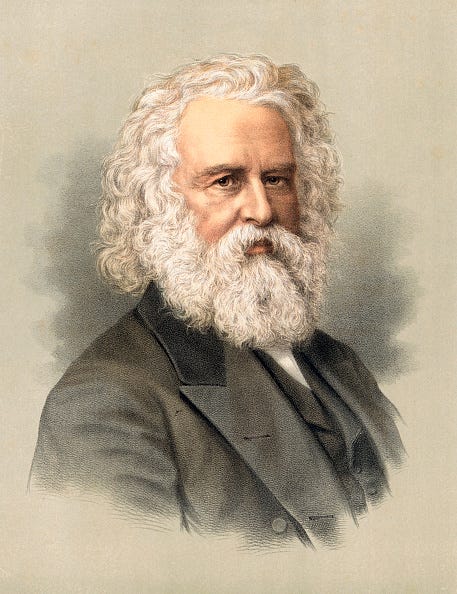The Writer's Almanac from Tuesday, February 27, 2007
"Snow-Flakes" by Henry Wadsworth Longfellow.
It's the birthday of novelist and humorist Peter De Vries, born in Chicago, Illinois (1910). His parents were immigrants from Holland, and he grew up in a Dutch section of Chicago. His parents wouldn't let him go to the movies, dance, play cards, attend regular public schools, or do anything else they considered secular. He once said, "My father hated radio and could not wait for television to be invented so he could hate that too."
De Vries eventually rebelled against his upbringing, but he never quite got over the strangeness of worldly things, and it inspired him to begin writing satirical novels, including Comfort Me With Apples (1956) and The Tents of Wickedness (1959). He wrote his novel The Blood of the Lamb (1962) after his daughter died of leukemia, and though it was the darkest book De Vries had ever published, critics now consider it his best novel. It fell out of print after De Vries's death, but was republished in 2005.
It was on this day in 1860 that the photographer Mathew Brady took the first of several portraits of Abraham Lincoln. Lincoln was just a presidential hopeful at the time, and he stopped by Mathew Brady's portrait gallery in New York City on his way to give an antislavery speech at the Cooper Union, and he thought a portrait might help his presidential campaign.The portrait was difficult to take, in part because Lincoln was so tall. Brady usually used a head clamp to immobilize his subjects, but the clamp didn't reach Lincoln's head. So Lincoln had to stand absolutely still for several minutes of his own free will. The photograph worked out, though, and it was published on the cover of Harper's Weekly. Lincoln later claimed the photograph and the Cooper's Union had made him president.
It's the birthday of the novelist John Steinbeck, born in Salinas, California (1902). He's best known for his novel The Grapes of Wrath (1939), about the "Dust Bowl" farmers who had to migrate to California after a drought had destroyed their land. To research the book, he bought a an old bakery truck, filled it with blankets, food, and cooking utensils, and joined the migration himself, so that he could meet and talk to people without being conspicuous. The novel won the Pulitzer Prize for literature in 1940 and Steinbeck went on to win the Nobel Prize for literature in 1962.
It's the birthday of the poet Henry Wadsworth Longfellow, born in Portland, Maine (1807). He was the most popular American poet in his lifetime, and one of the first American poets to be taken seriously abroad.He was something of a child prodigy, and entered Bowdoin College when he was just 14, where he was in the same class as Nathaniel Hawthorne. When Longfellow graduated, Bowdoin offered him a chair in modern languages, and he went on to teach German, French, Spanish, and Italian. He didn't start focusing on his own poetry again until he took a trip with his wife to Germany, and on the way she had a miscarriage and died from complications. Longfellow was devastated, and he responded by throwing himself into his work, reading as much German poetry as he could. And when he got back to the United States, he began writing a series of poems about specifically American subjects, something that was still rare at the time. Among these early poems was "The Village Blacksmith," which begins, "UNDER a spreading chestnut-tree / The village smithy stands; / The smith, a mighty man is he, / With large and sinewy hands; / And the muscles of his brawny arms / Are strong as iron bands." But the poem that made Longfellow's name was a book-length poem called Evangeline (1847), about two lovers in Nova Scotia who are separated on their wedding day when the English government expels French Canadian settlers from the area. Evangeline goes on an epic journey across North American to search for her husband, only to find him on his deathbed. Longfellow went on to write numerous popular narrative poems, including "The Song of Hiawatha" (1855), and "Paul Revere's Ride" (1863). But though he eventually quit teaching modern languages, he always enjoyed translation. In 1861, his second wife was attempting to melt some sealing wax when she caught her own dress on fire and was burned to death. Longfellow was badly burned trying to save her. He spent the next few years comforting himself by working on a translation of Dante's Inferno, the first major translation of the poem into English by an American.
Be well, do good work, and keep in touch.®
A Prairie Home Companion Scroll Shirt
This has quickly become our most popular shirt design! A spring vine scrolls around the classic A Prairie Home Companion microphone logo. This shirt was inspired by a design used by the Grand Old Opry, which itself was the inspiration for Garrison's show! Lightweight, brown T-shirt is a cotton/poly blend.





